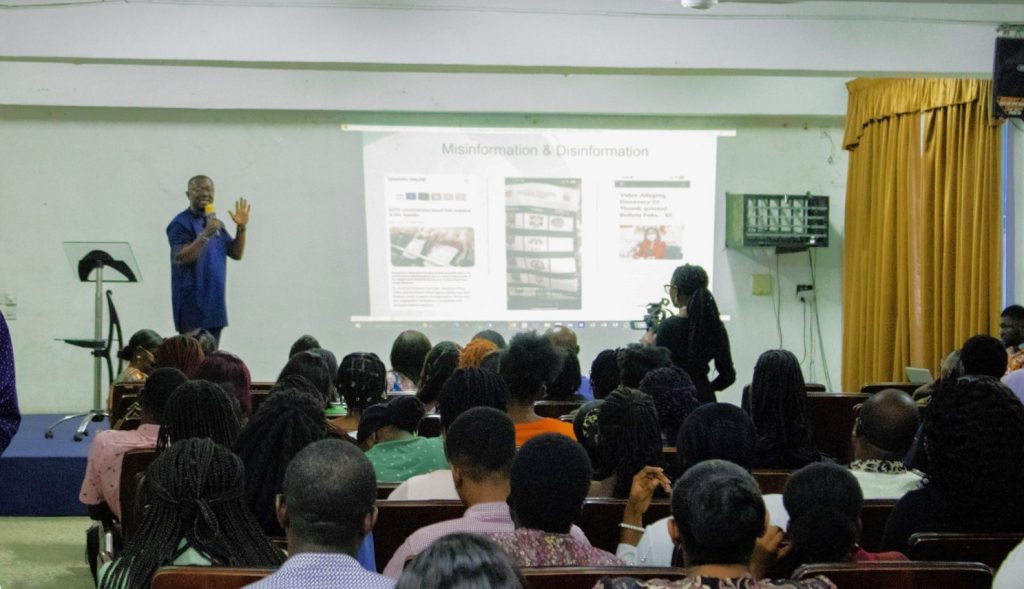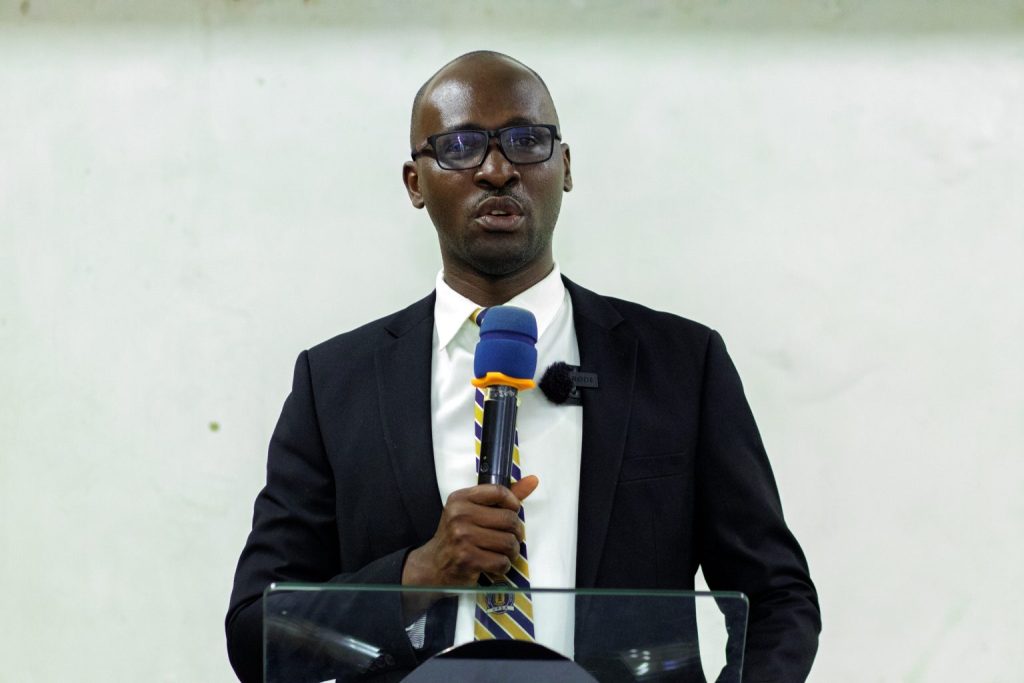Accra, Oct 26 (UPSA/GNA) – The General Manager of the Ghana News Agency (GNA), Albert Kofi Owusu, has called for a collaborative effort in the fight against misinformation and disinformation ahead of the 2024 general elections.
He emphasised that addressing the growing threat of fake news must be a shared responsibility, urging all stakeholders—from the Electoral Commission and political parties to media houses and citizens—to ensure that truth prevails over falsehood in the run up to the elections for the sake of Ghana’s democracy.
Mr Kofi Owusu made this call during the 5th Guest Lecture Series, organised by the UPSA Faculty of Information Technology and Communication Studies (FITCS) on Wednesday, October 23.
He was delivering a lecture on the topic “Misinformation and Disinformation on Elections Communications: Recommendations to Stakeholders on Ghana’s 2024 Elections”.

Mr. Owusu warned that the spread of false information poses a significant threat to national security and public trust.
“As we approach the 2024 elections, addressing the challenges of misinformation and disinformation must be a shared responsibility,” he emphasised.
“By taking proactive measures and promoting transparency and integrity in our electoral communication, we can safeguard the democratic process.”
He explained that while misinformation refers to the unintentional dissemination of inaccurate information, disinformation involves the deliberate creation and dissemination of falsehoods to deceive, manipulate, or influence public opinion.
Citing findings from a recent Afrobarometer report, he noted that misinformation and disinformation have eroded confidence in key public institutions, posing a serious danger to Ghana’s democracy.
He therefore urged institutions such as the Electoral Commission (EC) to proactively tackle the spread of false information before and during the elections in December, cautioning that swift action is essential to prevent further harm.
The media, Mr Owusu noted, also plays a crucial role. “Media houses must prioritise fact-checking and ensure that only verified information is shared with the public. Journalists should be trained to detect and address disinformation, particularly on social media platforms,” Mr. Owusu advised.

Dean of FITCS, Prof. Emmanuel Selase Asamoah, mentioned that the phenomenon of misinformation and disinformation is not just troubling but threatens the very fabric of Ghana’s democratic system.
He encouraged students to take advantage of the lecture, noting that Mr. Owusu’s practical insights would equip them with the tools needed to navigate the challenges posed by misinformation and disinformation.
The 5th Guest Lecture Series provided an essential platform for the exchange of ideas, equipping students and stakeholders with the knowledge needed to confront the growing threat of false information as Ghana prepares for presidential and parliamentary elections.
GNA/Credit: UPSA